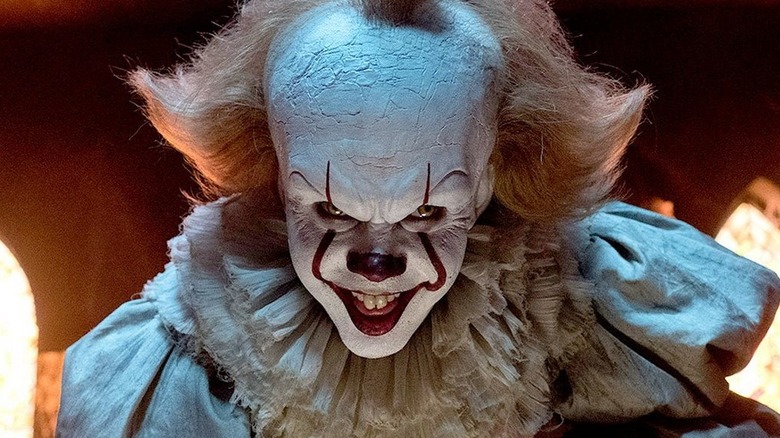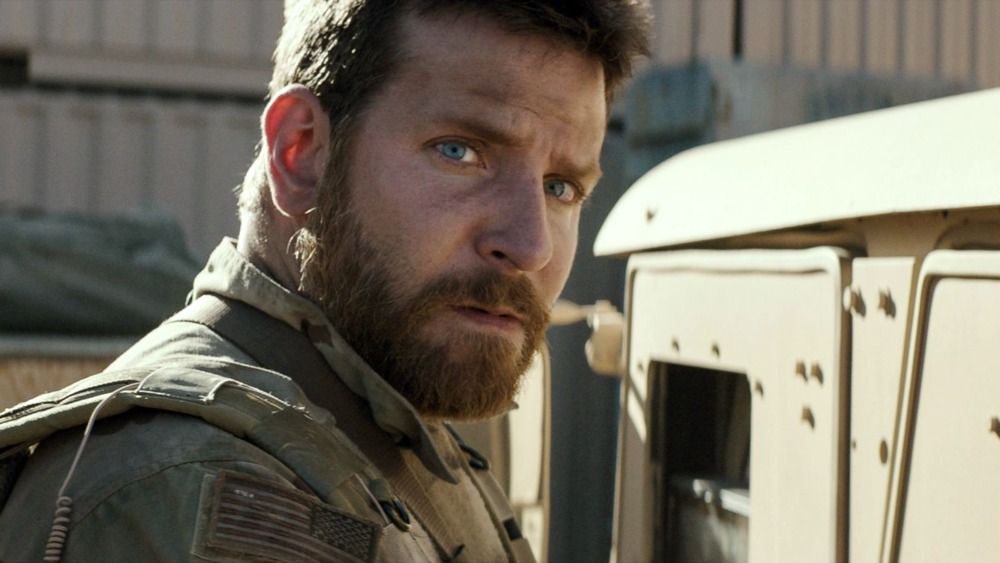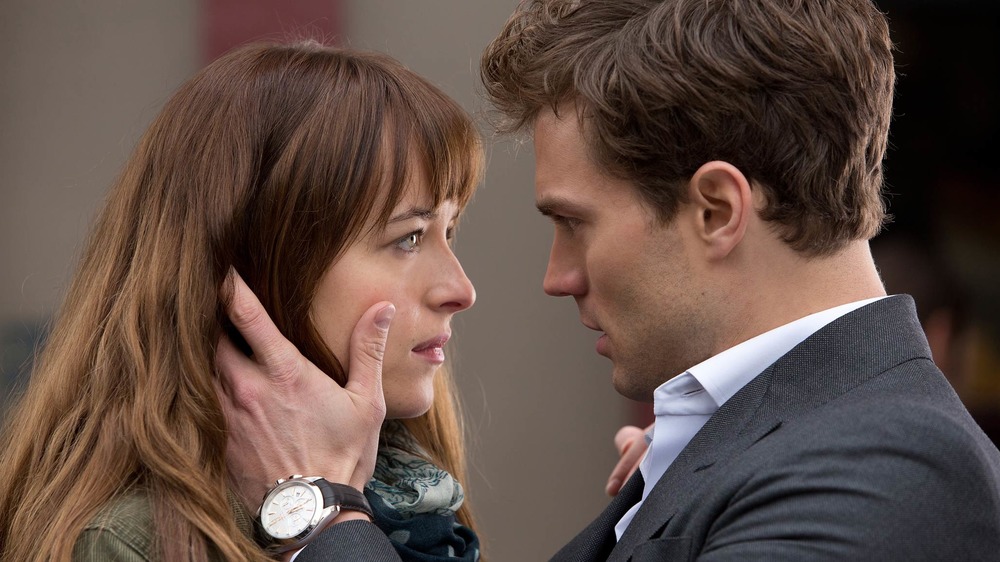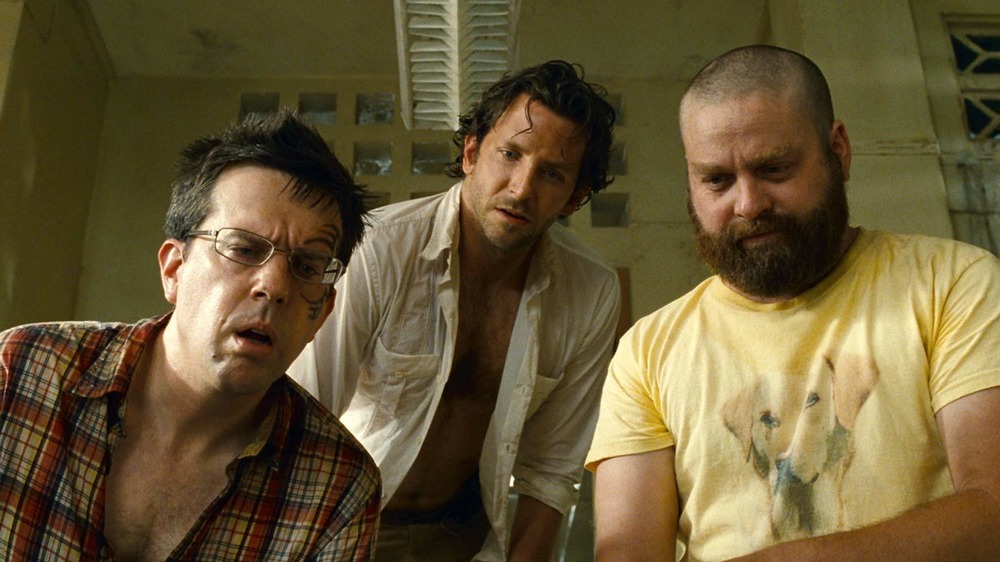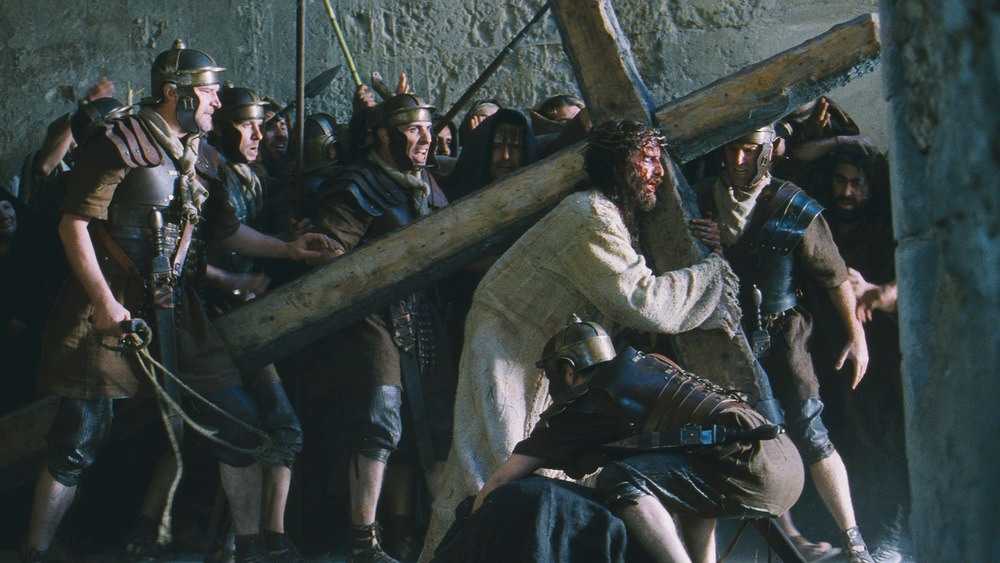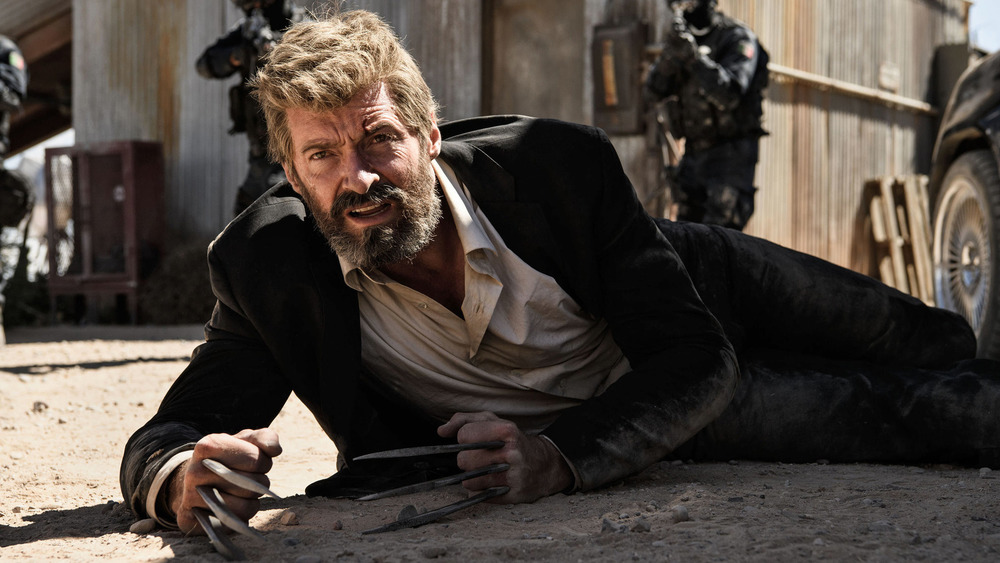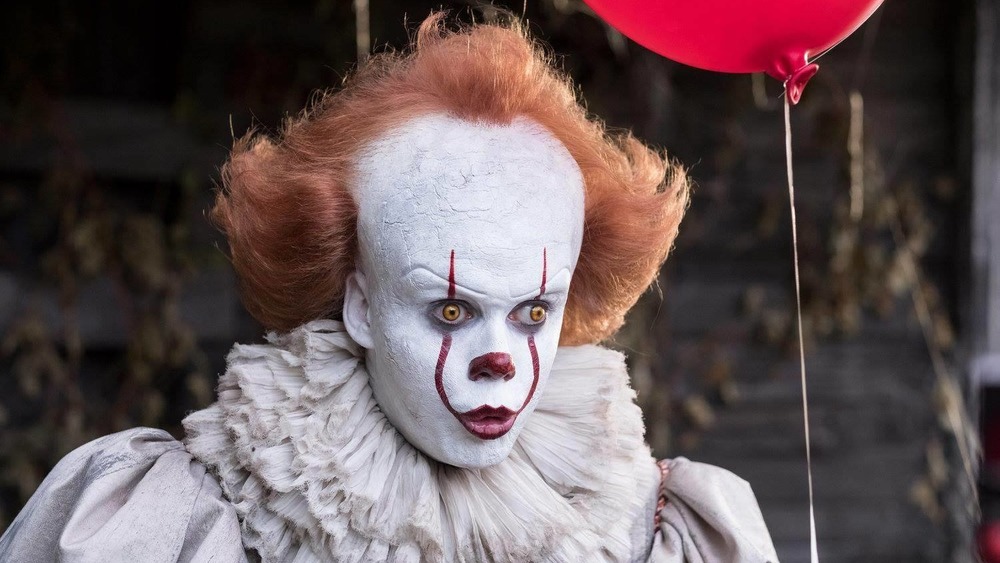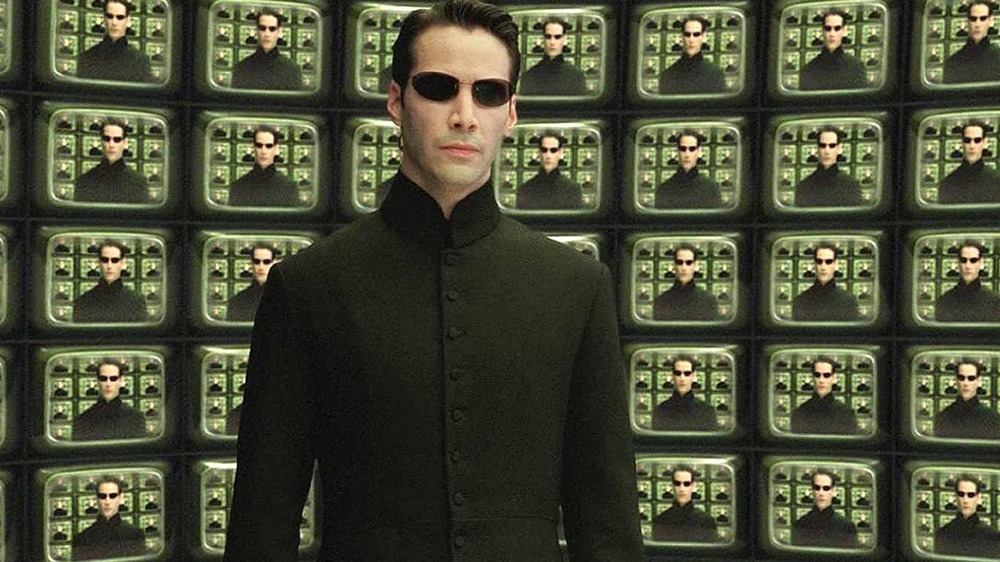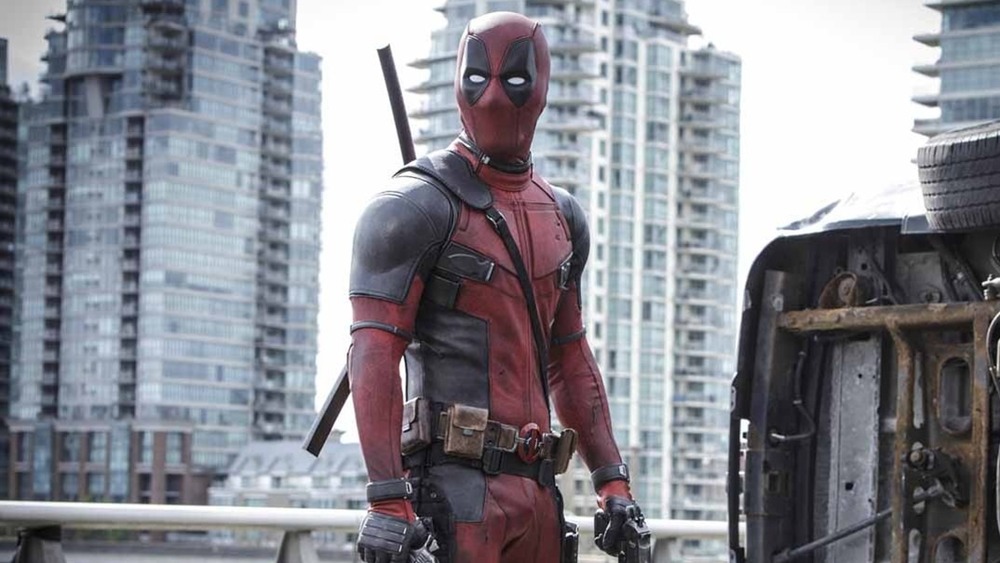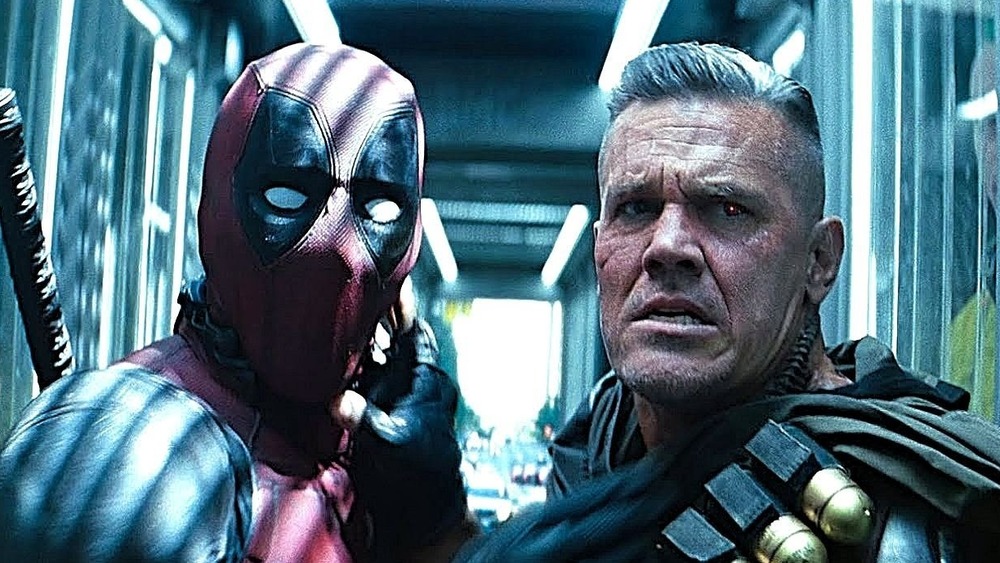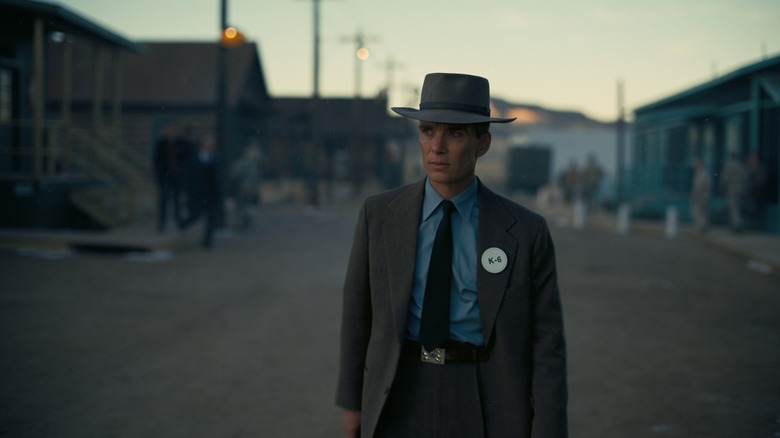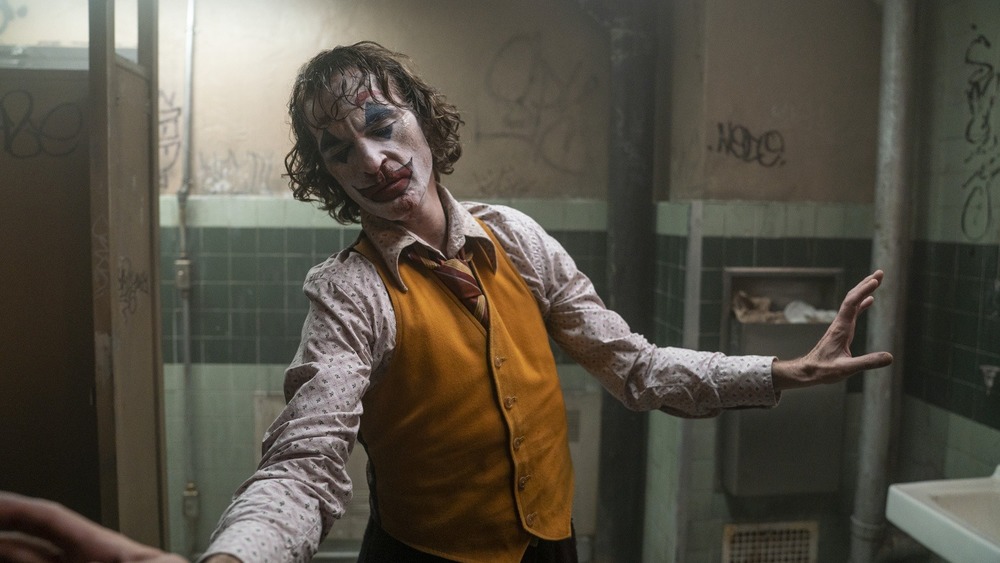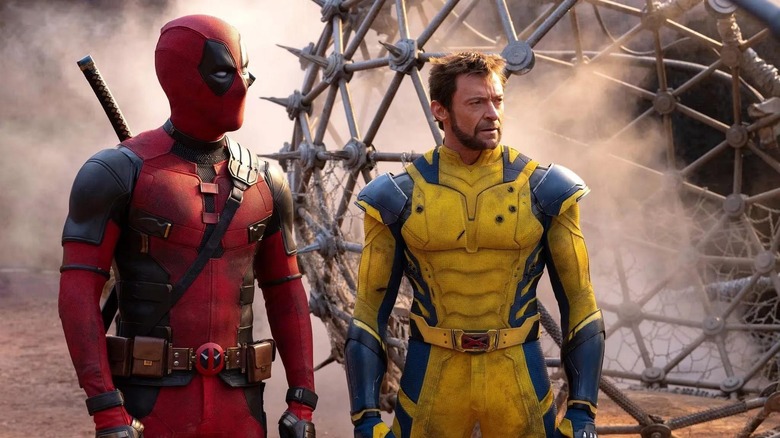The Highest-Grossing R-Rated Movies Of All Time
Conventional wisdom in Hollywood says that if you want to score a box office hit, don't make it R-rated. By making a film that's rated R, you're immediately restricting the movie's audience by preventing people under 17 from seeing the movie without a parental guardian. As a result, Hollywood has frequently avoided spending too lavishly on projects with R ratings, out of fear that films with this MPAA rating will never make a profit.
However, over the years, countless exceptions have emerged that demonstrate that, just because a movie is rated R, that doesn't mean box office success is entirely ruled out. On the contrary, some of the biggest movies of recent years had a gigantic R-rating on their respective posters.
All of these adult-skewing titles had something special that made them stand out to moviegoers. Whether it was through savvy marketing, lots of pre-release hype or simply being based on beloved source material, these incredibly lucrative titles had the qualities necessary to defy conventional wisdom and become R-rated box office sensations.
American Sniper
Since "Saving Private Ryan" in 1998, R-rated films have rarely topped the annual domestic box office. That's partially because it's always been somewhat rare for R-rated films to secure that spot, since their restrictive rating means less people can see them. Before "Ryan," the last R-rated film to top the domestic box office was "Terminator 2: Judgment Day" seven years prior. And it took 17 years after the release of "Saving Private Ryan" for another R-rated movie to reach the top of the yearly domestic box office: "American Sniper."
Not only was "Sniper" a massive hit domestically, but it proved lucrative enough overseas to secure a $547.4 million worldwide gross. Making this achievement all the more remarkable is that R-rated films that make a bundle worldwide are usually comedies or action movies, not grim dramas like "American Sniper." But the film had a number of advantages on its side, including the fact that it was based on a best-selling book.
There's also the fact that, while "American Sniper" was questioned for its accuracy, the story of Chris Kyle simply struck a nerve with the world when "American Sniper" hit theaters at the end of 2014. Combining the fame of that story with the movie's heavy award season presence made it the film to see as well as the only instance of an R-rated release topping the yearly box office in the 21st century — until "Bad Boys for Life" did it in the COVID-impacted year of 2020.
Ted
In 2012, there were certain things audiences came out by the millions to see. The first-ever big team-up between Marvel superheroes. The first Middle-earth prequel. And, of course, there were the exploits of a foul-mouthed teddy bear with a thick Boston accent. Seth MacFarlane's directorial debut "Ted" was a massive sleeper hit, dropping at the end of June 2012 and proceeding to gross $549.3 million worldwide, in the process becoming the biggest R-rated non-sequel comedy up to that point.
It was a particularly impressive feat, given how the genre "Ted" belonged to sometimes struggles at the international box office. American comedies sometimes have a difficult time resonating with audiences in foreign countries. Specific costumes or references to American culture can get lost in translation. With "Ted," though, that wasn't a problem since the sight of a raunchy yet cuddly teddy bear transcended language barriers. No matter where you are, something cute acting naughty will always have a certain appeal. Plus the film was redubbed for certain countries, a feat that could be achieved more easily thanks to Ted being a CG creation.
As a result, "Ted" ended up flourishing in countries like Russia and Japan where American comedies usually struggle. Just like with superhero team-ups and Middle-earth adventures, moviegoers around the world in 2012 couldn't get enough of that foul-mouthed bear.
The Mermaid
The Chinese box office exploded for much of the last decade, to the point that it handily overtook America as the biggest movie marketplace in the world in 2020. An early sign that China was becoming a box office force to be reckoned with came with the 2016 film "The Mermaid." Directed by Stephen Chow, the film was already looking like a box office hit thanks to savvy marketing, the decision to unleash the feature one day after Chinese New Year and the box office track record of previous Chow features.
However, "The Mermaid" obliterated all expectations with its eventual box office run, which saw it cracking $150 million in China after just four days of release. This made it apparent that "The Mermaid" would be a hit, but even at that point, nobody could conceive of just how massive it would become. Eventually, it became the first movie to gross over $500 million in China alone, surpassing "Monster Hunt" to become the biggest movie ever at the Chinese box office.
In the years since "The Mermaid" debuted, a handful of other Chinese movies (such as "Hi Mom" or "Wolf Warriors 2") have managed to achieve even greater box office success in that territory. However, all current Chinese box office juggernauts owe a debt of gratitude to "The Mermaid" for being the one that redefined the level of success Chinese blockbusters could achieve.
Fifty Shades of Grey
There was a time when Hollywood not only regularly made steamy erotic thrillers, but when audiences showed up in droves for such films. "Basic Instinct" made $352.7 million in the early 1990s while "Fatal Attraction" earned $320 million a few years prior. What superhero movies were at the box office in the 2010s, erotic thrillers were in the late '80s and early '90s.
Of course, no subgenre can reign supreme forever. Flops like "Striptease" resulted in Hollywood largely abandoning the genre by the late 1990s. So fans of steamy, melodramatic cinema cheered in the streets when the erotic thriller made a major comeback in 2015 thanks to the release of "Fifty Shades of Grey." In the process of adapting this E.L. James novel, Hollywood got a flashback to when erotic thrillers were go-to moneymakers in the world of film.
"Fifty Shades of Grey" made $569.6 million worldwide, an outstanding sum of money that proved that "Fifty Shades" was no flash-in-the-pan literary hit. This was a book that had resonated with audiences across the globe, to the point that people just had to see how it was brought to life. This box office haul was even more impressive given that "Fifty Shades" didn't have big-name stars like many past erotic thrillers. It got by just on the brand name of its source material, a lot of hot-and-heavy action, and the fact that sex is always capable of drawing a crowd.
The Hangover Part II
"The Hangover" was that rare breed of blockbuster: the truly rewatchable comedy movie that was original, with lead actors who were, at the time, not big stars. Despite that, audiences flocked to it and turned it into a worldwide sensation that completely upended the norm for what R-rated comedies could do at the 21st-century box office. Given that level of popularity, it should be no surprise that "The Hangover Part II" was an even bigger hit than the original at the worldwide box office.
Given that this follow-up had a built-in brand and would not be a slow and steady hit like the original, "The Hangover Part II" didn't have the longevity of its predecessor. However, it still managed to burn bright in theaters as it grossed a massive $589.7 million. Opening the next "Hangover" just two years after the initial movie and over the Memorial Day holiday weekend turned out to be savvy moves for the raunchy follow-up. The sequel was banking on audiences loving that first movie so much, and it turned out to be more than enough to make the second one a gigantic blockbuster.
The first "Hangover" was the rare original film to become a hit. Its sequel, meanwhile, is a quintessential example of a tentpole sequel that audiences couldn't get enough of.
The Passion of the Christ
Jesus Christ, "The Passion of the Christ" sure was a box office hit in its 2004 theatrical run. There was a time when it looked like "The Passion of the Christ" would end up being the next ill-fated passion project from a famous actor, a la "Waterworld." The fact that it was being distributed independently, along with director Mel Gibson's streak of controversial behavior at the start of the 2000s, also seemed to spell doom for the production ever being able to make back its $30 million budget.
However, "The Passion" didn't just become profitable, it became a box office juggernaut, one that took in $612 million worldwide. This included a gargantuan $371 million domestic haul, which made "The Passion" the biggest R-rated movie of all time domestically until it was usurped by "Deadpool and Wolverine."
"The Passion" benefited from outreach to Christian groups as well as a perfect release date that allowed it to play all throughout the spring and major holidays like Easter. There was also the fact that its excessive violence and controversial qualities – which arguably ruined star Jim Caviezel's career — made it a conversation piece that people had to see to be in on the pop culture discourse. With this element at its back, "The Passion" was able to draw in moviegoers for weeks and weeks. In the process, a likely flop turned into a holy box office hit.
Logan
You may not have noticed, but "Deadpool" changed movies in 2016, as R-rated comic book films were no longer taboo. Suddenly, it was apparent that these movies could be just as lucrative as their PG-13 counterparts. Hoping to continue that trend was "Logan," the third solo Wolverine movie and the first time the character would star in an R-rated story. It was a bold gamble for a number of reasons. For one thing, "Logan" lacked the kind of large-scale set pieces that define most comic book movies. For another, Wolverine's solo outings hadn't set the box office on fire, with "The Wolverine" becoming the lowest-grossing "X-Men" movie domestically until "Dark Phoenix" rolled around.
Despite these issues, "Logan" ended up becoming nothing short of a smash hit. In its theatrical run, "Logan" grossed $614.2 million worldwide. Exempting the "Deadpool" movies, that put "Logan" ahead of all other "X-Men" movies worldwide save for "Days of Future Past." Taking a bold swing with Wolverine in a gloomy quasi-Western may have seemed like it could alienate audiences, but on the contrary, it ensured "Logan" stood out in the blockbuster marketplace.
This wasn't a run-of-the-mill superhero movie and that uniqueness was combined with the similarly enticing quality of "Logan" being Hugh Jackman's final turn as Wolverine until 2024. Combining those factors with the film's extremely positive reviews and "Logan" turned into the kind of event film that far surpassed what R-rated movies are typically expected to gross at the worldwide box office.
Detective Chinatown 3
The glory days of China's box office appear to be in the past. This country still produces one or two blockbusters each year that stand toe-to-toe with the biggest American movies in raw box office grosses. However, the days of "Wolf Warrior II" and "The Battle at Lake Changjin" each taking in over $800 million in China alone appears to be finished. For comparison's sake, the biggest movie in China in 2024 so far is "YOLO" with a $479.5 million gross, a far cry from, say, "Ne Zha" making over $735 million in China in 2019.
One of the last beneficiaries of China's massive box office wave was "Detective Chinatown 3." This R-rated action-comedy was originally headed to theaters in early 2020, but the COVID-19 pandemic delayed its release by an entire year. Absence, however, didn't lead moviegoers to give this production the cold shoulder. Instead, "Detective Chinatown 3" grossed a massive $625.1 million almost exclusively from China (no domestic box office grosses were reported).
That was enough to make "Detective Chinatown 3," as of this writing, the eighth-biggest R-rated movie ever globally. The passionate Chinese moviegoing public helped this title, but residual goodwill from the previous "Detective Chinatown" installments also didn't hurt. Even if the Chinese box office currently isn't quite at the peak of its prowess, churning out a historic hit like "Detective Chinatown 3" is still a massive achievement for this hit.
It: Chapter One
Horror movies aren't supposed to be box office juggernauts. Usually, these movies are cheap enough that they can make a profit without needing to hit $400 million worldwide. However, in recent years, horror films have begun to hit new box office highs that have redefined the standards of financial success in the genre. Nowhere is this more apparent than with "It: Chapter One," which not only became the biggest horror movie of all time but, at the time of its release, only the third R-rated feature to crack $700 million worldwide.
The astonishing $701.7 million worldwide gross of "It" was thanks to its beloved source material. "It" is one of Stephen King's most famous books, but aside from a two-part TV movie starring Tim Curry, it's never gotten a proper feature-length adaptation. Decades of anticipation fueled the movie's gross as audiences showed up to finally see what a big-budget version of this story would look like.
It wasn't just longtime Stephen King fans that elevated this movie's box office grosses either: the adolescent protagonists helped the film lure in younger-than-usual moviegoers for a horror movie. Iconic source material with wide appeal is a recipe for a box office hit for sure, but nobody could have seen "It" going this high and, in the process, setting a new bar for the highest-grossing horror movies of all time.
The Matrix Reloaded
Many R-rated films that make over $500 million are surprises, the kind of films that make you stand up and take notice of their unexpected success. "The Matrix Reloaded" had an impressive box office run but it was the furthest thing from surprising. The original "Matrix" had become a pop culture phenomenon and one of the best sci-fi movies ever, helping to reshape the blockbuster landscape. People were eagerly awaiting a follow-up and it was no surprise to see that sequel, "The Matrix Reloaded," eventually making a killing at the worldwide box office. Still, even those expecting another home run from the team behind the original "Matrix" were shocked with just how big "Reloaded" ended up being.
With $738.5 million worldwide, "Reloaded" handily surpassed the original "Matrix" and became, at the time, the highest-grossing R-rated movie in history. What made it an especially impressive haul was that "Reloaded" outgrossed all but one other live-action title at the worldwide box office in 2003. Promising more "Matrix" adventures was always going to be a surefire recipe for box office success, but a memorable marketing campaign and positive advance buzz ensured that "The Matrix Reloaded" had more to lean on than its predecessor's brand name. Common wisdom suggests that an R-rating is supposed to restrict your appeal to the general public. Instead, such a rating was an afterthought for "The Matrix Reloaded," which had enough hype to work with almost any MPAA rating.
Deadpool
It took years for the first "Deadpool" movie just to get made. For the longest time, it seemed like the film was destined to be merely a hypothetical, something Ryan Reynolds would get asked about in interviews without ever actually getting produced. It took a positive reaction to leaked test footage for 20th Century Fox to finally give the film the green light. Given the eventual success of "Deadpool," these struggles to make the movie now feel staggeringly short-sighted. But at the time, R-rated superhero films were persona non grata in Hollywood and the "X-Men" movies hadn't been able to launch truly successful spin-off titles. The odds were totally against "Deadpool."
However, "Deadpool" overcame those odds thanks to an ingenious, pervasive marketing campaign that conveyed a uniquely irreverent attitude. There had been many comedic superhero movies but never one with this unique kind of levity. The fact that it was dead set on correcting the mistakes of Deadpool's prior incarnation in "X-Men Origins: Wolverine" made the project extra appealing to die-hard fans of the character.
The result was a movie that blew away all prior "X-Men" movies at the box office with a gargantuan $782.6 million worldwide box office gross. Fox may not have been initially enthusiastic about "Deadpool," but with a box office gross like that, they were all too happy to have taken the risk.
Deadpool 2
With "Deadpool 2," it was time to see if the Merc With a Mouth would be able to beat the comedy sequel curse. Save for "The Hangover Part II," comedy sequels have a bad history of making significantly less than their predecessors. "Ted 2," "Neighbors 2," "Horrible Bosses 2" – you can throw a stone and find a comedy sequel that underwhelmed financially.
But with "Deadpool 2," there was really no reason to be concerned that this film would fall prey to the same trend. The box office issues that had long plagued comedy sequels proved to be no problem. Despite opening directly in the wake of the record-breaking "Avengers: Infinity War," "Deadpool 2" still took in a sizable box office haul, with an eventual Chinese release of the film's PG-13 cut taking its lifetime box office gross to $786.8 million.
"Deadpool 2" managed to avoid becoming the next "Wayne's World 2" by, among other means, emphasizing new characters like Cable (Josh Brolin) and Domino (Zazie Beetz) in its marketing. Audiences were reassured they'd receive something with "Deadpool 2" that they wouldn't just get by rewatching the original. Deadpool is always subverting expectations, and that includes going against the box office norms for comedy sequels.
Oppenheimer
Christopher Nolan has become a reliable hitmaker in the wake of the phenomenal success of "The Dark Knight." However, even for this esteemed director, questions dominated the global box office run of "Oppenheimer" before it premiered. Were audiences going to show up for something so talky? Would international moviegoers be interested in a distinctly American enterprise, devoid of the kind of spectacle that's supposed to translate easily across language barriers? All the conventional box office rules said "Oppenheimer" was doomed to fail — and those conventions were dead wrong.
"Oppenheimer" became a worldwide phenomenon the moment it touched down in theaters. Concerns about J. Robert Oppenheimer's story only having appeal for North American moviegoers quickly vanished. Eventually, this title scored an astonishing $976.9 million worldwide gross, including a staggering $647.1 million overseas. For comparison's sake, "Inception" made $825 million worldwide 13 years earlier and that one had both big action sequences and Leonardo DiCaprio bolstering its global appeal.
Lots of factors (including its must-see IMAX imagery and Nolan's reputation) made "Oppenheimer" essential moviegoing for folks worldwide. However, nothing helped more than the film being a hit with audiences and critics alike. "Oppenheimer" should have been a box office loser, but it turned instead into a game-changer for what kind of R-rated movies could become global blockbusters.
Joker
There's no other way to describe the $1.074 billion worldwide box office of "Joker" than just staggeringly impressive. For one thing, the film was massively profitable, considering it cost only $60 million to make. For another, "Joker" became the first R-rated movie in history to crack $1 billion at the worldwide box office. It's also impressive how it outgrossed the films that creatively spawned it. It beat out the worldwide box office grosses of all but one of the Batman movies and exceeded the grosses of all prior movies produced or directed by executive producer Martin Scorsese.
It's also notable which huge blockbusters "Joker" managed to outgross at the worldwide box office in 2019. That list included significantly more expensive all-ages tentpoles like "Aladdin," "Toy Story 4," and even "Star Wars: The Rise of Skywalker." The list goes on and on about the feats "Joker" achieved in its remarkable box office run, which came about due to a confluence of positive factors.
Not only is the Joker a beloved comic book character, but the trailers and posters for the movie immediately captured the eye. The fact that it was all anyone could talk about in the fall of 2019 made it the kind of watercooler movie you just had to see. All these qualities yielded a box office trailblazer that struck a chord with moviegoers around the globe.
Deadpool and Wolverine
In the first weeks of 2019, a theatrical reissue of "Deadpool 2," along with the film finally debuting in China, pushed that superhero feature past the first "Deadpool" to become the biggest R-rated movie ever worldwide. It was a momentous victory demonstrating what widespread appeal Ryan Reynolds quipping in a tight red suit and mask had. It was always expected that "Deadpool and Wolverine" would continue the hit box office streak of its predecessors, especially since it arrived in theaters as part of the Marvel Cinematic Universe. Perhaps it would even perform a bit better than those first two "Deadpool" outings, though how much better was anyone's guess.
However, nobody could have imagined "Deadpool and Wolverine" becoming this gargantuan. Worldwide, this Shawn Levy directorial effort has grossed $1.151 billion to date. That haul handily outpaced "Joker" to make "Deadpool and Wolverine" the biggest R-rated feature globally and only the second title with that MPAA rating to exceed $1+ billion. The movie has also exceeded the worldwide grosses of PG-13 MCU fare like "Captain Marvel" and "Spider-Man: Far From Home," while also surpassing the global hauls of the two previous "Deadpool" entries by a significant margin. Once again, the Merc with a Mouth is champion of the R-rated cinema domain.
